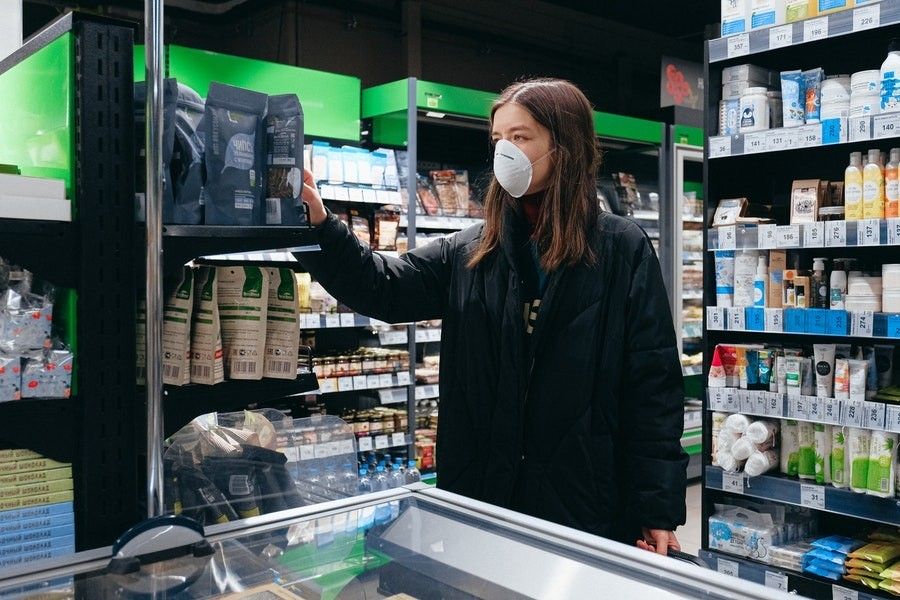PMR report: Impact of Covid-19 on consumer behaviour

Wpis dostępny jest także w języku:
![]() polski
polski
Closed shops, fear of contagion, rising unemployment, and no clear prospect of a return to normal – the coronavirus epidemic is changing consumer patterns in Poland in important ways, according to a new report from PMR, “The impact of coronavirus on consumer behaviour in Poland 2020”.
The lockdown imposed in Poland in the second week of March to contain the spread of Covid-19 will last for about two months; the government has already initiated tentative steps to reopen the economy. However, it is highly probable that in some sectors, especially in the mass events sector, the restrictions will continue for several more months (much like in Germany’s lockdown exit plan, for example).
The primary focus of the world’s governments remains on saving as many lives as possible, but this approach is getting harder to maintain as jobs continue to be lost, businesses go bankrupt, and tax revenue plunges. At the same time, a vaccine or an effective cure for Covid-19 is unlikely to become available soon. The economic and social consequences of the pandemic have begun to reshape consumer behaviour, and these changes will be lasting; some might even deepen over time.
How much will consumer spending decrease?
The shifts in Poles’ shopping patterns and missions that we are observing will of course show up in macroeconomic numbers for 2020, notably the level of private consumption. At PMR we have developed three alternative scenarios for how private consumption pans out this year compared with 2019, depending on the duration of the restrictions: (1) – a lockdown of about two months, followed by a rapid exit from it; (2) – a lockdown of about two months, followed by a slow, gradual exit; (3) – the same as (2), plus a second wave of the epidemic – with a return of at least some of the restrictions – in the autumn.
Under all three scenarios, consumer spending will decline in 2020 – by between 1% and 8%. The situation could be exacerbated by drought, which is forecast to be really bad this year, and which will push up food prices in the coming months.
People shop for food less often, stockpile more
In a survey of over 1,000 Poles that we conducted for this report, nearly 50% said they increased food stockpiling (i.e., buying in bigger quantities than immediately needed) in the last three weeks. Almost as many reported no change, though. A comparison with an earlier PMR survey carried out in 2019 shows that the proportion reporting an increase in stockpiling is similar to that prompted by the ban on Sunday trading. But the products involved, and the reasons, are different. The principal reason now is that people shop less often to minimise close contact with others.
Non-food purchases reduced to minimum
With the sole exception of cosmetics, Poles have significantly scaled back their spending on non-food products (clothes, footwear, furniture and home furnishings, consumer electronics, white goods) in the last weeks, postponing planned purchases or abandoning them altogether.
Another notable change is increased popularity of parcel locker delivery for online orders.
Overall, spending on non-food products in 2020 is set to fall even more sharply than consumer spending as a whole. It is probable, too, that some of the purchases that people now say they have postponed will never materialise.
Services: when will customers return?
Gastronomic outlets, restricted to takeout and delivery, are doing all they can to make the most of the situation. The range of delivery options for consumers has grown considerably. But in the first three weeks of the epidemic, Poles did not rush to order delivery meals. Indeed, more than 50% say they did so less often than before. Only less than 10% ordered delivery meals more often.
Consumers’ fear of the virus is perceptible, especially when it comes to using services of various kinds, including entertainment. For example, 43% say they will forego holidays abroad completely, and 26% plan to postpone them.
For the purposes of the report, PMR carried out a nationwide survey in April 2020, interviewing a representative sample of 1,300 Poles. They were asked about the ways in which the coronavirus pandemic has affected their shopping habits, and about their plans for the coming months.







